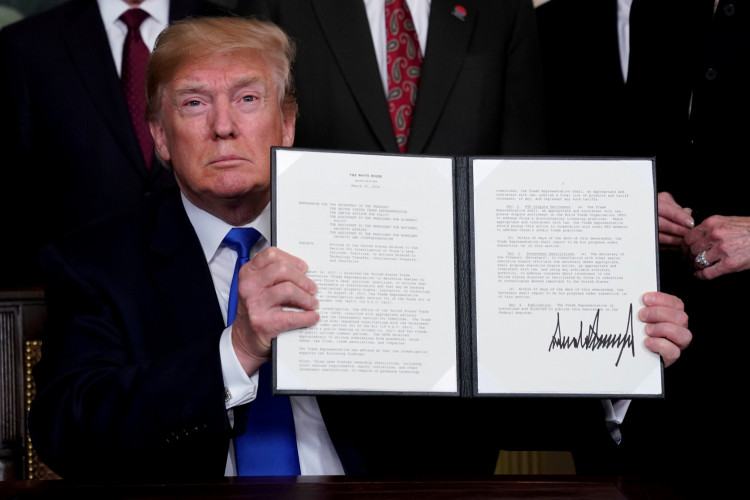The world's two largest economies are expected to implement new rounds of tariffs against each other by Monday, Sept. 24 in the latest escalation in the ongoing China-US trade war.
Washington will implement taxes on $200 billion of Chinese products at 12 a.m. Washington time, Bloomberg reported. This is apart from the tariffs on $50 billion in Chinese goods that are already in effect.
All in all, Washington will collect taxes from $250 billion of products it imports from Beijing. Bloomberg noted that this already constitutes almost half of all Chinese products that the United States is buying from China based on 2017 data.
On the other hand, as soon as the new levies on $200 billion Chinese products take effect on Monday, Beijing will impose taxes on $110 billion of U.S. products that it buys from the United States. This constitutes 70 percent of all products China imports from Washington as seen in 2017.
The latest escalation took place following a decision from Chinese officials to cancel the planned trade negotiations with their U.S. counterparts. Beijing decided to bow out from the talks after the U.S. State Department's decision to sanction China's defense agency over military purchases from Russia, sources told Bloomberg. China thins it will be wiser to proceed with the trade talks after the U.S. mid-term elections in November.
As soon as the new U.S. tariffs take effect by midnight and China retaliates, President Donald Trump may next impose levies on $267 billion of Chinese goods. When this happens, then all products that Washington buys from Beijing will be practically covered with taxes, to the detriment of companies. This impending escalation would compromise all global diversification plans of affected companies. It will also delay supply chain operations, resulting in low product supply, and eventually rapid inflation that can be felt around the world.
The above scenario could, in fact, happen in a relatively short period, Goldman Sachs separately told CNBC. Further escalation coming from the Trump administration raised the likelihood of taxes being imposed on all Chinese goods by a probability of 60 percent, the analysts said.
The ideal "free trade" condition is that for counties to produce more of commodities which are unique to them to sustain their market advantage. Countries, on the other hand, should consume less of the products that place them in a comparative advantage in the market. Goldman analysts believed that if the China-US trade war persists, this ideal trade balance will be at risk.
Goldman added that all goods will become more expensive because of taxes, and inflation will be widespread on a global scale.
Unfortunately, the China-US trade war is happening amid a backdrop of a global trade that has been in its highest growth rate in six years according to the World Trade Organization. The world exports in 2017 hit nearly $18 trillion. If tensions between the world's two largest economies continue, this growth rate will no longer be sustained.






